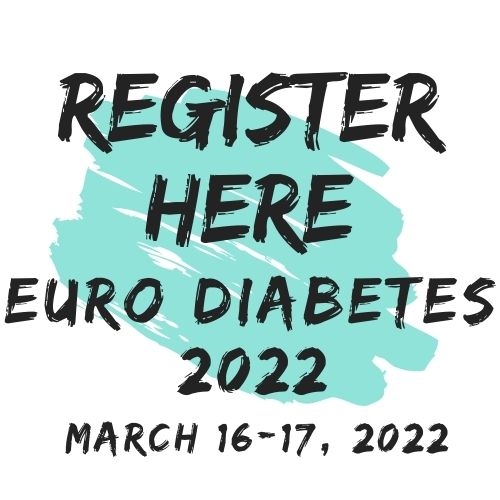Simona OpriÅŸ
National Institute of Gerontology and Geriatrics, Romania
Title: Triglyceride-Glucose index and lipid disturbancies at Type 2 diabetes mellitus elderly patients
Biography
Biography: Simona OpriÅŸ
Abstract
Background: It is known that triglyceride-glucose index (TyG) has high sensitivity for insulin resistance and is closely associated with metabolic syndrome and diabetes mellitus type 2 (DM) development.
Aim: The purpose of the study was to establish the correlation between TyG and lipid modification in the DM development.
Material and method: Present work included 79 elderly patients: 49 DM and 30 healthy control patients.
Findings: Data revealed an increase of triglycerides, cholesterol, non-HDL-cholesterol (p<0.0001; p<0.05; p<0.0001), and a decrease of HDL-cholesterol (p<0.0001) at DM patients vs. control. As for TyG, DM patients have also high levels vs. control (p<0.0001). The linear regression equations showed a significant positive correlation of glucose with: HbA1c, non-HDL-cholesterol, triglycerides and negative correlation with HDL-cholesterol; also a significant positive correlation of HbA1c with triglycerides at DM patients. For TyG linear regression revealed a positive significant correlation with HbA1c, cholesterol and non-HDL-cholesterol at DM patients. Diagnostic test evaluation for TyG indicated: 88.61% assay accuracy, 85.71% sensitivity, 93.33% specificity, 62.03% disease prevalence and relative risk estimate=4.77. Multivariate logistic regression analysis showed that patients with high TyG are 84 times more likely to have diabetes compared to those with low TyG [OR 84, 95% CI: 16.25-434.17; p<0.00001].
Conclusions: There is a strong direct correlation between TyG and DM, the higher TyG the more likely it is to develop DM. Also TyG is positively associated with lipid status. TyG could be more reliable than glycemic/lipid parameters and could be used in identifying patients at borderline or apparently healthy.

